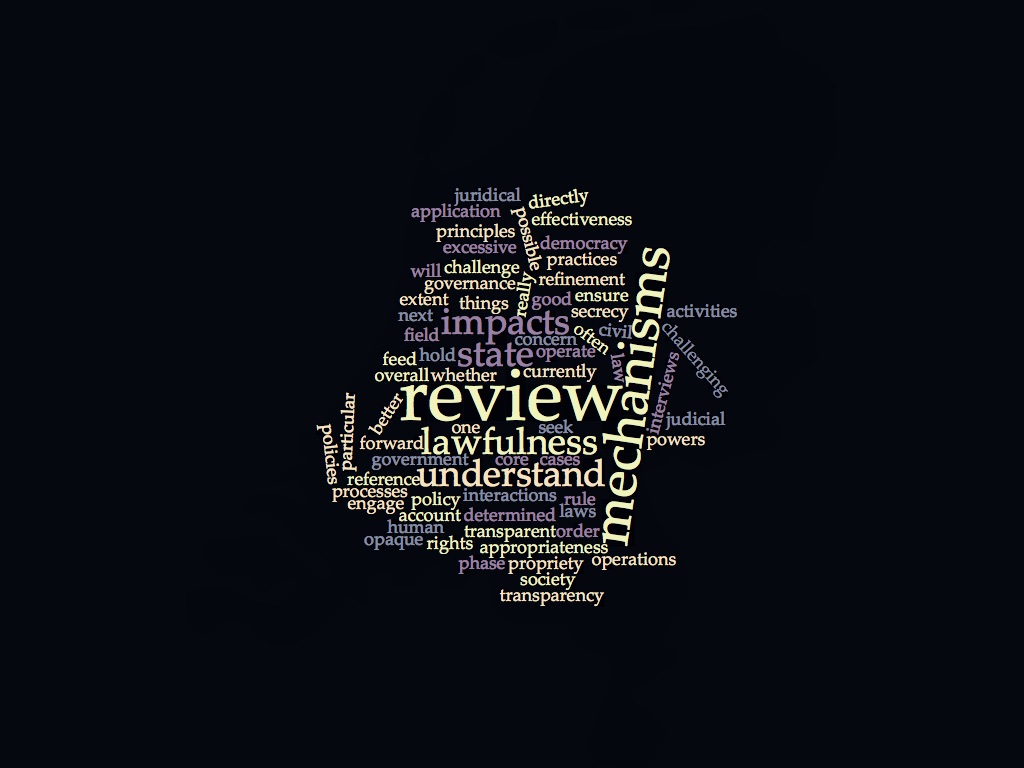 The aim of this project is to map, critically engage with, and propose improvements to counter-terrorism review in the United Kingdom. The obvious starting point, however, is ‘what is counter-terrorism review?’
The aim of this project is to map, critically engage with, and propose improvements to counter-terrorism review in the United Kingdom. The obvious starting point, however, is ‘what is counter-terrorism review?’
In this project we go beyond ‘judicial review’ of lawfulness, or juridical processes for challenging the application of powers in particular cases, in understanding counter-terrorism review. Our reach is, purposefully, broader. Instead of a narrow focus on the role of courts in counter-terrorism review (on which some of us have previously written extensively), we are interested in counter-terrorism review understood as the retrospective consideration of counter-terrorism laws and measures to assess their lawfulness, propriety, impacts, effectiveness and appropriateness by reference to core principles of democracy, human rights and the rule of law, regardless of the form of review. This means that we are considering a very wide range of potential actors and processes, both national and international.
The primary focus is on official, national counter-terrorism review. This of course includes judicial review, and actors established in order to undertake bespoke counter-terrorism related review such as the Independent Reviewer of Terrorism Legislation and the Independent Reviewer of the Justice and Security (Northern Ireland) Act 2007. However, it goes beyond that to include, for example, the Privy Council, parliamentary committees, HEFCE, and the Office for Security and Counter-Terrorism. These different potential counter-terrorism review mechanisms operate at highly variable levels of transparency, but already we are beginning to see the complex and multiple ways in which their reviews of counter-terrorism laws, policies, activities and operations interact with one another, and how they interact with general accountability mechanisms (such as, for example, individual ministerial accountability) and civil society activity (including, for example, shadow reporting to international treaty monitoring bodies and processes).
The current phase of research (desk research into the operation, processes, rules, membership, selection and ‘impacts’ of counter-terrorism work of the various national bodies identified through our mapping exercise) is beginning to bring some of these connections to light. However, it is also demonstrating the ways in which much of counter-terrorism review is opaque, and is politically triggered rather than mandated by legislation.
Our next phase will be to engage with counter-terrorism review mechanisms directly, through interviews, in order better to understand these mechanisms, their interactions, and their impacts. As our overall concern is with counter-terrorism review and good governance, one of the things we seek to understand is whether, as they currently operate, counter-terrorism review mechanisms in the UK really do hold the government to account, challenge excessive state counter-terrorism policy, ensure state counter-terrorism practices are transparent (to the extent possible in a field often determined by secrecy), and ‘feed forward’ into the refinement of counter-terrorism.

3 thoughts on “What is Counter-Terrorism Review?”
Comments are closed.